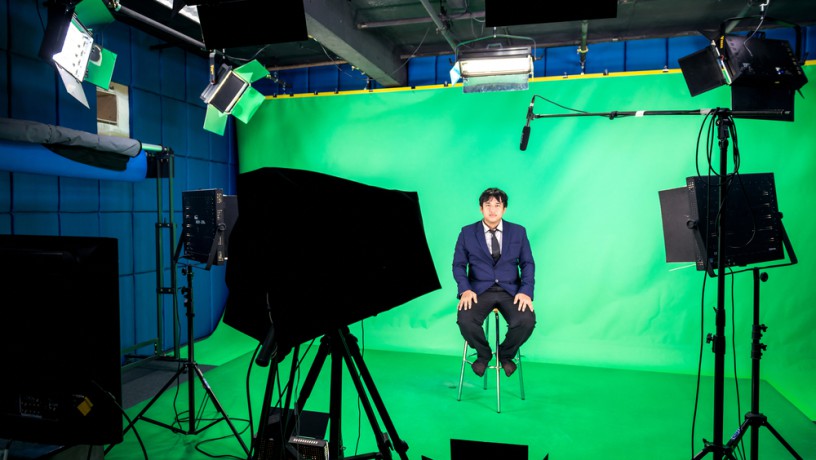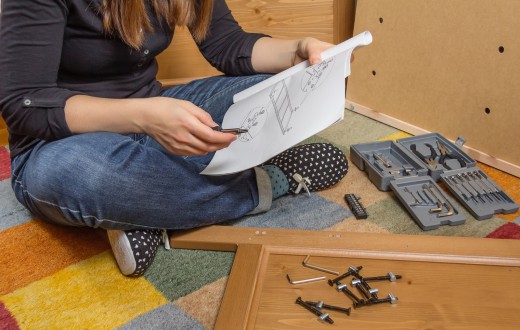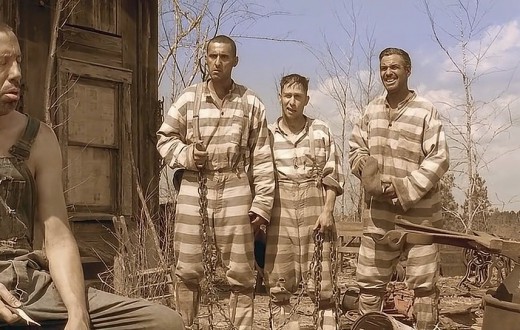Jumping into acting as a career choice is like stepping off a cliff, and at the bottom is a murky pool filled with black water and populated with mysterious swirling creatures that you can’t quite make out. In other words, it takes courage–and maybe a little lunacy. But we’ll leave that for now.
For those who are just starting out, you probably have a whole lot of questions that go unanswered–and not just the kind you get asked by your Aunt Marian at Thanksgiving dinner: “Acting? But how will you pay RENT?!? Are you CRAZY?!?”
No, you’re not crazy. You’re bold, courageous, and you feel drawn to this field with a passion that will not be denied. Tell Aunt Marian to stick to her Pinot Grigio and leave life to those with the balls to live it.
However, let’s try to address a few of the commonly asked non-Aunt Marian type questions, and see if we can’t ease your worried mind a bit.
1. I know I’m talented, but I don’t have a lot of training. Will casting directors laugh me out of the room?
Talent versus training is always a thorny question. No doubt people who graduate from a theater program have a head start on learning technique, the history of film and theater, and the technical aspects of stagecraft. But the thing you need to remember next time some fresh university graduate looks down his or her nose at your relative lack of training is this: they are pretty much just as new to the business of acting as you are. In the big picture, they also have very little in the way of training, regardless of their shiny new degree–and believe me, it shows. Bottom line: energy, enthusiasm, openness, an interesting look and a willingness to listen and learn will almost always win out over book-learning. (Bonus secret: education in acting is a lifetime affair! There are ALWAYS more classes you can take, and if you aren’t learning from each and every audition, callback and show you are involved in, then shame on you.)
2. I have a college degree, but not from a prestigious school. Does that matter?
No. Sure, a Yale degree might impress some people, perhaps even a casting director or two. But if you don’t show them the goods at the audition, it doesn’t matter if God himself gave you an MFA from the Heaven School of Drama. What happens in the audition room is all that really matters. Something else too: once you’ve been in the business a while, you start to notice that the only people who are impressed with degrees from prestigious schools are the people who have them–and who paid all that money to get them. No matter where you went to school, you should never stop learning: never stop taking classes, asking questions, picking the brains of directors and other actors you work with, and reading. There are a million paths to knowledge; don’t be afraid to make your own.
3. How do I get an agent?
Lots of beginning actors think this is the very first step after they graduate and move to New York or L.A.: get an agent, book roles, then sit back and watch the money and fame roll in. Hate to burst your bubble but it rarely works like this. Your job starting out is to get experience and to get better. You need to have what it takes to catch a good agent’s eye as much as a casting director’s eye: learn everything you can, take classes (again with the classes? Yes. Emphatically, yes.) read the trades, read scripts, see plays and films, and audition for everything that has roles within reason for you. As you develop your skills, your CV and your reel, you are more likely to be considered by an agent. While we’re on this subject, you should never pay an agent up front. The agent takes a cut of earnings you make for roles you book as a result of their work. They may recommend photographers or other supplementary career aids that cost money, but if an agent says you have to pay them a fee up front for representation, you should see yourself out.
4. Do I have to be beautiful/thin/young?
All it takes is a quick scan of actors who are making headlines these days to see that this isn’t true. Never before in the history of film and television has the field been more wide open for looks of all types. Long gone are the days when only chisel-jawed, 6’2” hunks and rail-thin ingénues could be cast as leads. Yes, these types do and probably always will be cast. But for every film featuring a Ryan Gosling, there are 20 or 40 or 100 actors working around him who look like normal human beings. Embrace your uniqueness, don’t run from it. Are you funny? Quirky? Intimidating? Adorable? Brooding? Acerbic? There are roles out there for all of these types and more.
5. Will I get more roles if I post my monologues and showreels on YouTube or Facebook?
Probably not, and frankly this is a terrible idea. The internet is forever, kids. Posting an early career monologue on Facebook is something like posting a pic of your genitalia: sure, you’re proud of it, and in theory it would be nice to have others admire it. But maybe not EVERYONE needs to see it. As an actor, of course you want to show off your work. But publicly posting these sorts of pieces is likely to bite you in the ass at some point. For one thing, remember that even a piece that is the absolute very best work you’ve done in your career so far is still just your best SO FAR. You are just starting out, and although you may not be able to see it now, you are going to be so much better down the road. Keep your reel and your monologues set to private so you can share them with agents and casting directors, but don’t open yourself up to public scrutiny of something that is a work in progress: you.
6. What about my foreign-sounding name, or my accent? Will these hold me back?
As long as you can be understood, both of these things can actually be used to your advantage. This is not the 1950s; there are always roles for people who are not Ozzy and Harriet, white-bread Americana types. However, a couple of caveats: if your accent or dialect is particularly thick, you might consider working with someone to smooth out the rough edges. And even if your accent isn’t that strong, the greater the variety of dialects you can effectively bring as an actor will open up the potential roles you could be cast in. Even native English speaking actors can benefit from working with a dialect coach that can help you master different dialects. As far as your name goes, as long as it is pronounceable, you should be fine at this point in your career without going the Ellis Island name-change route.







